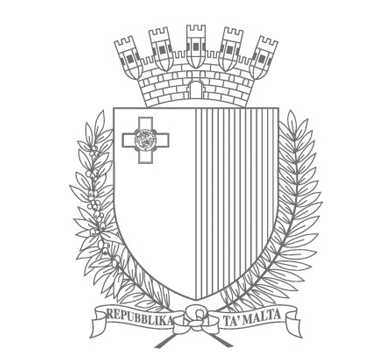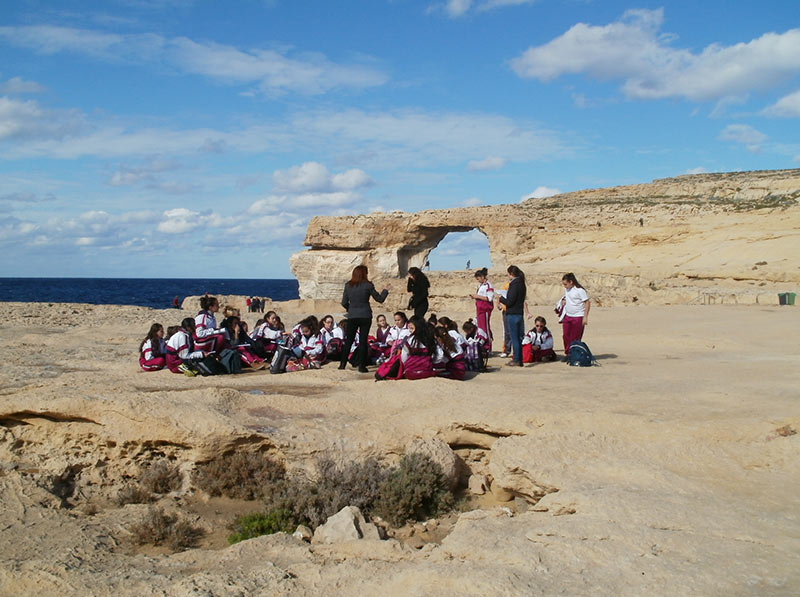



The objective of the Ministry for Education and Employment is to provide present and future generations with the necessary skills and talents for citizenship and employability, in the 21st century and beyond.
Our children need to develop their personal and social potential and acquire the appropriate knowledge, key skills, competences and attitudes through a value-oriented formation including equity, social justice, diversity and inclusivity.
 Photo: The Biology Department teaching outdoors
Photo: The Biology Department teaching outdoors
The Ministry for Education and Employment (Malta) has a number of directorates within in which provide different services to the stakeholders. The Directorate for Quality and Standards in Education provides the curricular support and the quality assurance for the implementation of the curriculum in all schools.
A new National Curriculum Framework (NCF) that was enshrined in law in 2012, available here. This NCF retained and developed further the educational aspirations and aims of the 2000 National Minimum Curriculum. It proposed universal education entitlement built around eight Learning Areas. This is the first curriculum framework to be adopted since Malta joined the EU in 2004 and hence it has taken into consideration important policy-related documents issued by the European Commission. These include the Key Competences for Lifelong Learning — A European Reference Framework (included in the annex of the Recommendation) (2006/962/EC); the Strategic Framework for European Cooperation in Education and Training (ET 2020) (2009) and Europe 2020 – A strategy for smart sustainable and inclusive growth (COM (2010) 2020) which is the follow up to the Lisbon Strategy for Growth and Jobs (Memo 06/478/12th Dec 2006).
This NCF addresses the gaps in our learning processes that over the years have led to absenteeism, to significant rates of early school leavers and to low skills and competences for a proportion of students. It strengthens the already existing structures that are transforming schooling into learner-centred activities. It is intended to lead to an increased participation rate in post-secondary and tertiary education and attract more students to lifelong learning, encouraging them to embark on further and higher education streams.
 Photo: The Biology Department teaching outdoors
Photo: The Biology Department teaching outdoors
The NCF is presented within a lifelong learning perspective and celebrates diversity by catering for all learners at each stage of their education. It aims to introduce more equity and decentralisation in the national system. It treats early childhood, primary and secondary education with the same importance. The NCF seeks to present a seamless curriculum which reflects smooth transitions, building and extending on the firm foundations in early childhood education. In essence, the NCF aims at providing a quality education for all learners, reducing the percentage of early school leavers and strengthening their enrolment in further and higher education.
The NCF proposed a Learning Outcomes Framework as the keystone for learning and assessment throughout the years of compulsory schooling. The aim of the Learning Outcomes Framework is to free schools and learners from centrally-imposed knowledge-centric syllabi, and to give them the freedom to develop programmes that fulfil the framework of knowledge, attitudes and skills-based outcomes that are considered national education entitlement of all learners in Malta. The LOF is thus intended to eventually lead to more curricular autonomy of colleges and schools, so as to better address the learning needs of their students. The present tender is intended to deliver this Learning Outcomes Framework and related Learning and Assessment Programmes.
Visit Website